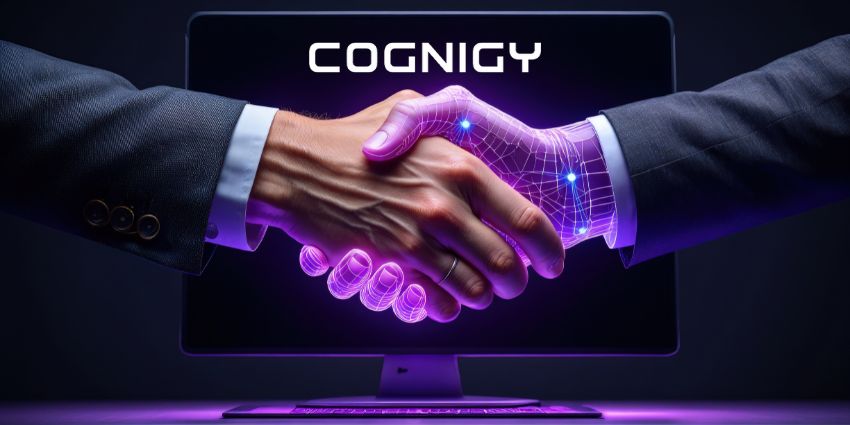Google has announced plans to embed its new Generative AI App Builder into the Google Contact Center AI Platform.
The App Builder combines large language models (LLMs), conversational AI, and search technologies to create multimodal chatbots capable of delivering personalized experiences.
First, the contact center must feed the builder with information from across the company website, product manuals, FAQ documents, and agent support content.
From there, Yariv Adan, Director of Cloud Conversational AI at Google, suggests that businesses can “build a bot within minutes.”
Sharing more in a blog post, Adan stated:
Just point the product at relevant sources— like the URL of a website, a manual, or a repository of websites—and with only a few clicks, a customized chatbot will [be] ready for deployment across a variety of channels.
While Adan did not mention voice, he suggested that the application will work on the company website, in customer apps, and across popular messaging channels.
By adding this to the existing conversational AI capabilities Google offers, the tech giant hopes to support brands in automating more contacts.
While many of these will involve gathering helpful information, Adan notes that the App Builder will also help customers process returns, make payments, and “execute other transactions.”
Using the Generative AI App Builder to Build Bots
There are three ways to build, deploy, and optimize bots using the Generative AI App Builder.
One is to choose from a set of prebuilt flows for everyday use cases. These spread out across a canvas, which creators can work from to modify using a drag-and-drop interface.
The next is more advanced. It allows businesses to write instructions in natural language, explaining what information the bot should collect, which tasks it should perform, and which APIs it should send data to. Then, the App Builder takes care of the rest. This is the future of no-code tooling.
Finally, contact centers can compose a business logic graph for more complex deployments.
Indeed, a business may map out the entire bot, creating a visual representation of how particular states and tasks relate to one another. Meanwhile, the AI handles the conversational details.
Already, Google is a leader in enterprise conversational AI platforms – according to the 2023 Gartner Magic Quadrant – and these new capabilities may further elevate its status in the space.
Moreover, by embedding them into its CCaaS platform, Adan believes that this is proof that:
Google Cloud [has] doubled down on its commitment to the contact center.
Adan also revealed plans to combine the App Builder with other elements of its Google Contact Center AI Platform to further transform service experiences.
How Else May the Generative AI App Builder Enhance Google’s CCaaS Platform?
Businesses utilizing the conversational AI features within the Google Contact Center AI Platform may already detect customer intent, match and route them to a voicebot.
When the Generative App Builder supports voice interactions, brands may automate many more customer conversations and cut call volumes.
Next, consider the role that the tool may play in assisting live agents. Explaining how the agent-assist tools within Google’s CCaaS platform currently work, Yadan states:
Live agents benefit by having answers to customer questions automatically surfaced to them during a live call, improving the experience for customers regardless of channel.
Conversational analytics provides the backbone for such use cases. It follows interactions in real-time, monitoring how customer intent and sentiment change throughout.
Paired with Generative AI, Google may soon auto-generate responses for agents, which they can review, tweak, and send.
There are many other areas in which Google may also use generative AI to improve its CCaaS platform. For instance, it may enhance reporting, routing, and auto-call summarization applications – as Five9 is already doing with ChatGPT.
For now, these are mere possibilities. However, adding generative AI into its CCaaS platform’s native virtual agent applications is an exciting step forward for Google in the contact center space.
It also comes after Google forayed into the contact center workforce management space earlier this week, hand-in-hand with UJET, its close CCaaS partner.







